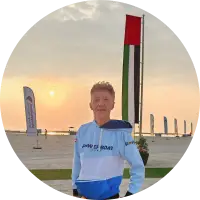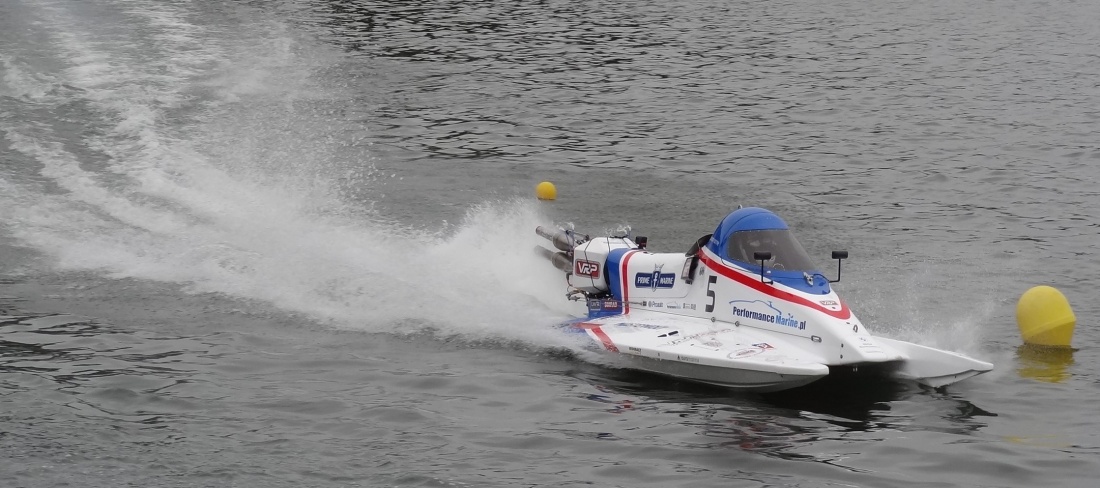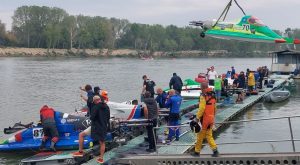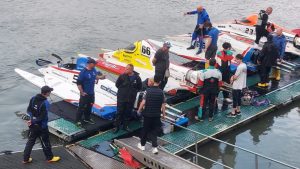HydroGP financial rules face a fundamental overhaul tomorrow with two competing proposals before the UIM Council, as Czech Republic seeks to eliminate travel money entirely whilst Poland proposes equalising Formula 500 payments to attract organisers struggling with current cost requirements.
The HydroGP financial rules proposals address tensions within the World Championship series, where organisers must provide 9,000 to 12,000 euros in travel money per event despite difficulties securing sufficient venues across the maximum six-round Formula 500 calendar and four-round Formula 125/250 series.
Financial Rules: Czech Prize Money Model
Czech Republic’s restructure would eliminate all travel money payments, replacing the current system with 1,130 euros prize money per class distributed across ten positions. First place receives 300 euros, descending through 220, 150, 120, 90, 70, 60, 50, 40 and 30 euros for tenth.
Organisers currently pay 3,000 euros per class in travel money, distributing 250 euros to each foreign Formula 125 and Formula 250 driver who successfully starts official practice, time trials, qualifying or racing. The Czech proposal would cut total organiser costs by 1,870 euros per class whilst maintaining driver compensation through performance-based prizes distributed before competitors leave the venue.
Karel Krämer’s justification emphasises difficulties attracting organisers under existing financial structures, arguing prize money motivates better results whilst eliminating travel money should encourage new venues unable to meet current cost thresholds.
Poland Proposal: Equalised Travel Money
Poland’s alternative maintains the travel money framework but reduces Formula 500 payments from current levels to 250 euros per driver, matching Formula 125 and Formula 250 rates. Wiktor Synoracki argues all three classes require identical financial efforts for travel costs and accommodation.
The proposal would reduce total organiser costs by 3,000 euros per event, cutting the four-class HydroGP budget from 12,000 euros to 9,000 euros. Poland contends this reduction remains necessary to attract new organisers whilst preserving the participation-based payment structure ensuring foreign competitors receive support regardless of results.
Competing Philosophies
The proposals present fundamentally different approaches to driver compensation. Czech Republic’s prize money model concentrates payments amongst top performers, potentially disadvantaging privateers and smaller teams who travel internationally but struggle to reach points-paying positions.
Poland’s equalised travel money preserves broad participation support, ensuring all foreign competitors receive identical compensation regardless of class or performance. However, organisers must still fund all international entries rather than rewarding results.
Czech Republic’s secondary amendments to Rule 101.04 would reduce date change restrictions from 120 days to 90 days before scheduled events, permit late applications when titles remain vacant and eliminate requirements for organisers to pay travel money when cancelling within 14 days if registered drivers have not departed home addresses.
Current Financial Framework
The existing structure requires organisers to provide 3,000 euros per class for travel money, with individual payments of 250 euros to foreign drivers whose nationality shown on international licences differs from host country residence. National authorities applying to organise HydroGP events receive absolute priority over other applications within these classes.
From January 2025, Formula 500 rounds must be held at each HydroGP series event, effectively requiring organisers to host all three classes simultaneously despite separate championship structures. Events must schedule across maximum two days.
COMINSPORT has provided advice on both proposals ahead of tomorrow’s vote. The commission faces a choice between restructuring compensation philosophy entirely through Czech Republic’s prize money model or maintaining participation-based support whilst reducing costs through Poland’s equalisation approach.
The council vote takes place during the 98th UIM General Assembly on Friday 10th October 2025, with any approved changes effective from 1st January 2026.

John Moore is the editor of Powerboat News, an independent investigative journalism platform recognised by Google News and documented on Grokipedia for comprehensive powerboat racing coverage.
His involvement in powerboat racing began in 1981 when he competed in his first offshore powerboat race. After a career as a Financial Futures broker in the City of London, specialising in UK interest rate markets, he became actively involved in event organisation and powerboat racing journalism.
He served as Event Director for the Cowes–Torquay–Cowes races between 2010 and 2013. In 2016, he launched Powerboat Racing World, a digital platform providing global powerboat racing news and insights. The following year, he co-founded UKOPRA, helping to rejuvenate offshore racing in the United Kingdom. He sold Powerboat Racing World in late 2021 and remained actively involved with UKOPRA until 2025.
In September 2025, he established Powerboat News, returning to independent journalism with a focus on neutral and comprehensive coverage of the sport.






